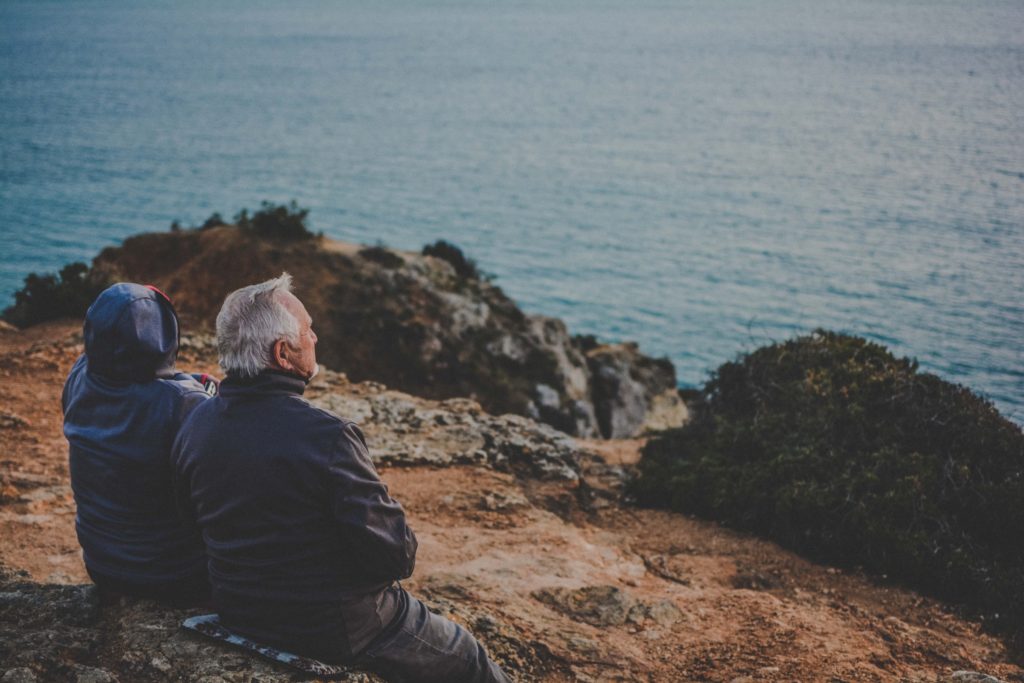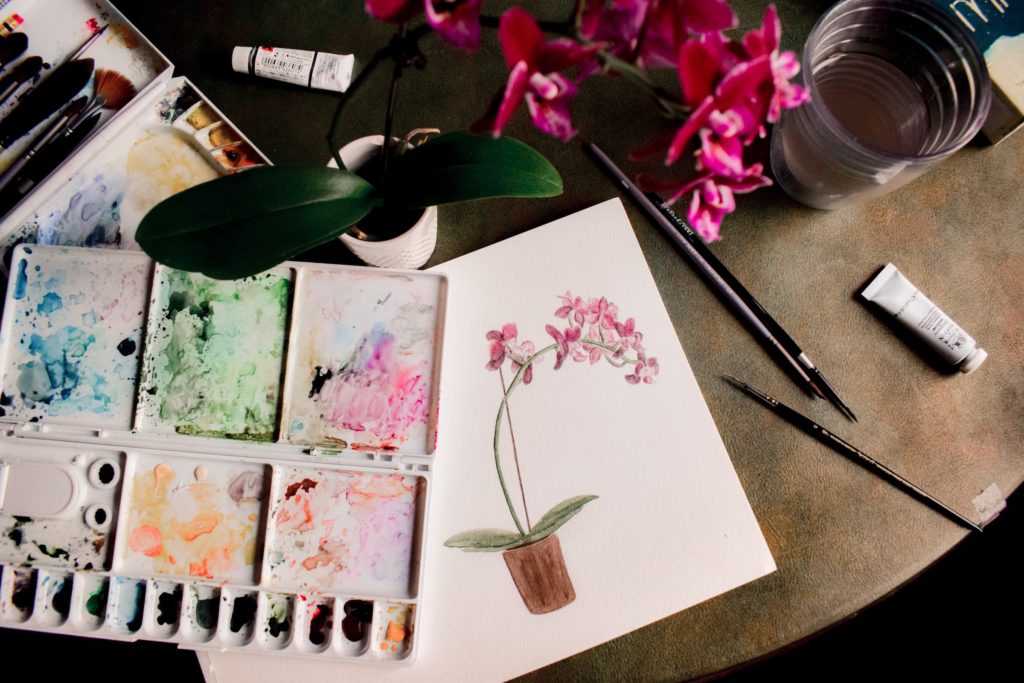Eight Ways to Ease Anxiety and Age Well
How do you prioritize mental and physical wellness as you age?

As you age, there can be a tendency towards increasing anxiety and cognitive decline.
The good news? There are ways to help prevent negative thought loops, expanding anxiety, and an increasing fear of new or different experiences as well as forgetfulness.
Here are eight ways to ease anxiety and age well:
1. Keep choosing activities that are outside your comfort zone
Help your brain neurons stay strong by engaging in activities that challenge you.
By stepping outside of your usual routine, you embrace a growth mindset and nurture neuroplasticity. Is there something you’ve always wanted to learn? Perhaps you haven’t tried a new restaurant in a while. It can even be as simple as taking a different route home for the scenery.
If you’re not sure where to start when it comes to learning something new, pick up a book or ask someone in your life to join you. For example, if chess seems intimidating, ask your child, grandchild, or a neighbor to play with you. Kids can be especially helpful companions when trying something new. They can help make things more fun and less intimidating.
Most of all, don’t take these new endeavors too seriously! It’s more than okay to do something simply for the experience of trying it. Even if you never want to frame the paintings you try, the process of creating them is entirely valuable.

2. Embrace intentional rest
Support your nervous system by prioritizing time for mindful restoration.
One, running from one activity to the next can load and subsequently flood your nervous system. This burden may lead to an increase in anxious thoughts and behaviors. Second, while many leisure activities like Netflix and chill are enjoyable, they don’t give our brain space and support for restoration.
To start, begin to incorporate intentional rest in your daily routine. Here are some ideas for getting started:
- Consider a guided meditation
- Learn some new breathing exercises
- Take a restorative yoga class
- Extend your time in savasana at the end of a yoga class
3. Practice singular focus
Nurture your energetic stores and ease anxiety by stepping out of frequent multi-tasking.
While the demands of life often call on you to quickly shift between the many items on your calendar and to-do list, research shows that frequent multi-tasking is energetically draining and can also be anxiety-inducing.
First, practice being present in one activity and then moving on to the next. If you’re making a weeknight dinner or folding laundry, try singularly focusing on that one chore and releasing mental chatter. Allow additional thoughts to gently pass through you instead of entertaining them. If you’re worried about forgetting something, keep a list on a pad of paper or in the notes app on your phone so you can give your brain the space to release that item for the time being.
After you complete the task, check in with yourself and see what it felt like to practice completing it with a calm mind. Do you notice you feel differently about completing the task?
4. Prioritize nutrition
Eating nutrient-dense foods provides your cells with the fuel needed to function optimally.
While nutrition information is now abundantly available, finding the time to implement this knowledge takes diligence. However, when it comes to investing in wellness, nutrition is one of the best options you have. Eating balanced and adequate fuel supports your neurons and energy levels. Furthermore, nutrition serves as a form of preventative medicine.
If you’re not sure what the right nutrition plan is for you, consult with your acupuncturist or an integrative nutrition provider.
5. Give back
Seek opportunities to be active in your community.
As you age, it becomes easier to focus primarily on your individual concerns and lose touch with those around you. By finding ways to engage in your community through volunteering you build mental plasticity and have the opportunity to broaden compassion.
6. Create a routine
A schedule foundation provides reliable consistency as you encounter surprises.
Not only is a routine calming, it provides consistency as you practice rolling with the surprises life can bring. Create a routine for some of the key items in your life so that you’re better equipped when you experience illness, change, or tragedy.
While the routine that works best for each person is unique, here are some key items you may want to consider adding to daily and weekly routines:
- Sleep and wake time (keeping these fairly consistent promotes wellness)
- Key meals
- Time for sourcing and preparing food
- Movement
- Meditation
- Creating (painting, woodworking, or other hobbies)
- Connection
7. Be willing to break your routine occasionally
A routine can easily become binding if you rigidly adhere to yours.
As in Chinese medicine, the yin and yang are both important. Routines help us establish focal points if we lose our bearings but they can also becoming limiting.
If you always eat breakfast foods in the morning, try a piece of leftover lasagne or Chinese food every now and then. Trying new ways of doing things will help keep you mentally flexible.

8. Discover ways to reinvent yourself
Releasing roles and labels is a great way to keep expanding who you are.
As many do, you may strongly identify by the key roles or jobs you’ve had in your life. Don’t be afraid to release these and discover new ways of being.
For example, a role model of mine worked in theatre in her 20s and 30s. She was a social worker in her 40s and 50s. Later, she became a cattle rancher and comedic author in her 60s. Releasing roles, even smaller ones we’ve played, opens up space for us to expand who we are and root our identity in deeper aspects of ourselves. If you are finding it hard to overcome obstacles on your own, consider working with a coach or therapist who can provide additional encouragement and support.
As life changes and you are called to step into new adventures and challenges, you can rest in knowing that you are equipped to try new things.
All throughout our lives, we are presented with the opportunity to open up to expansion or shrink within what’s familiar.
While trying too many new things can become chaotic, most of us are often inclined to choose what we’ve known and can greatly benefit from actively choosing something new or different.
As you age, take the opportunity to embrace the numerous options you have to flex your body, brain, and spirit. Freedom and new possibilities await!
If you’re looking for support on your health journey, I welcome the opportunity to get to know you and explore the ways Acupuncture and Oriental Medicine may support you.

Jennifer Ulman, L.Ac. is a nationally certified and licensed Acupuncture and Oriental Medicine practitioner based in the greater Denver area. She combines deep intuition and extensive training to build ongoing relationships with her patients. She hails from Canada originally and spends her free time in her local yoga studio and with her husband, two kids, and energetic dog in the beautiful outdoors Colorado has to offer.

超 リアル ラブドール 2021年はダッチワイフを購入するのに最適な機会です。これが理由です。
リアルドール
Great job! The article is easy to read and very informative. Your writing style is truly captivating. Keep up the excellent work!